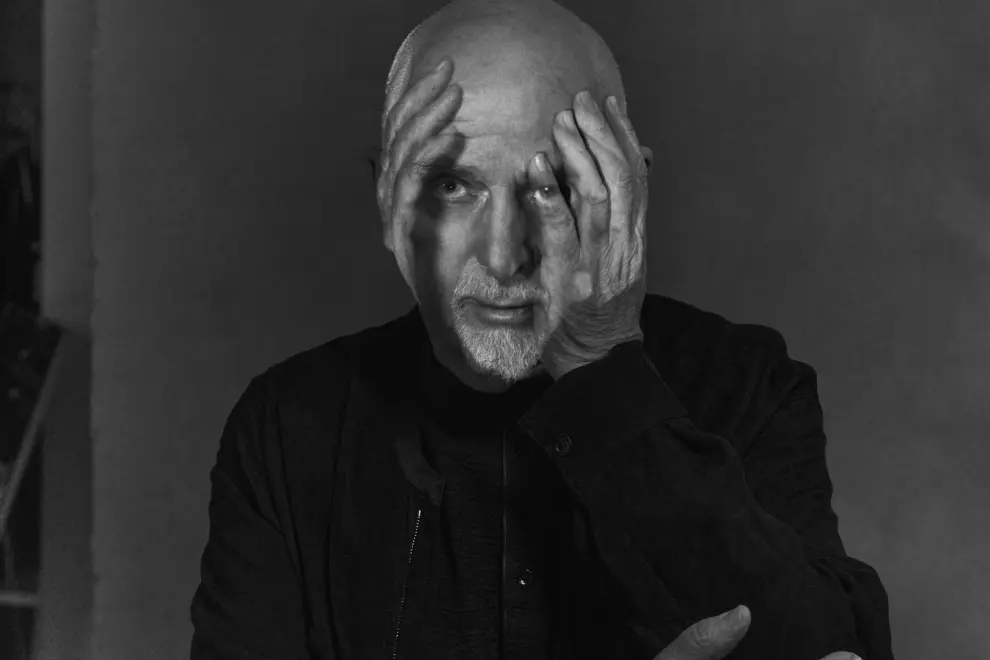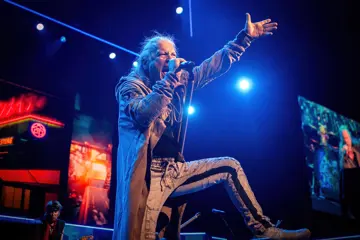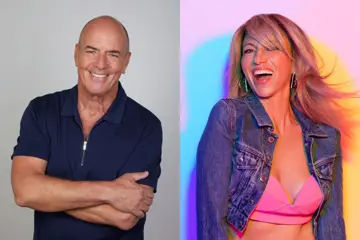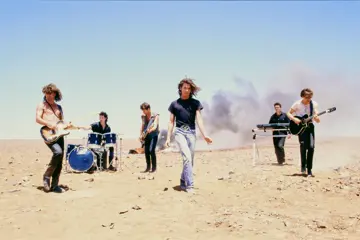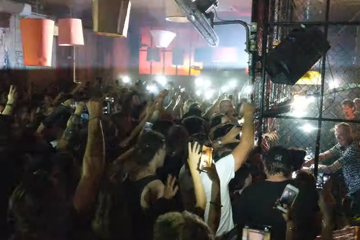Peter Gabriel is one of the most influential British artists of all time.
With fans in David Bowie, Elton John, R.E.M., Radiohead, Iron Maiden’s Bruce Dickinson and Steve Harris, Gotye, The Killers, Sarah McLachlan, TV On The Radio and many more, and an unfinished collaborators list just as stacked: Sinéad O'Connor, Kate Bush, Cocteau Twins’ Elizabeth Fraser, Nine Inch Nails’ Trent Reznor, The Police’s Stewart Copeland and former Genesis bandmate Phil Collins, his impact is unmistakably huge within the music industry.
That said, does that mean his loyal fans will follow his lead and begin releasing new songs on each full moon? We can’t say how likely that may be.
Gabriel also has a real modern-day icon considering themselves a lifelong fan: the ever-popular Harry Styles appeared on Howard Stern’s SiriusXM show in the early days of March 2020 and covered Gabriel’s hugely successful 1986 hit, Sledgehammer.
Calling the song one of the “best-mixed songs” of all time, Styles and his talented bandmates smashed it and succeeded in bringing an 80s song into the 2020s. The cover won the approval of Gabriel, who gave it some claps on his X (formerly Twitter) account.
Speaking to The Music in an exclusive Australian interview, Gabriel explains that while he and his team knew that the influential music video for Sledgehammer was extraordinary, they had no idea what kind of impact would follow in their wake.
Don't miss a beat with our FREE daily newsletter
“We knew the video was special but had no idea how far it might reach,” he admits. “I really enjoyed working with some of the great new artists using AI and Stability Diffusion to create their own videos. I love that technology is allowing everyone to see themselves as artists and that there are less and less barriers to entry.” More on AI later.
As a founding member and original vocalist of the British band Genesis, Gabriel and his bandmates became pioneers of progressive rock, having popularised the genre and winning fans all across Britain long before their music was anywhere near accessible.
From performing in dramatic costumes to combat stage fright in the emergence of Genesis to embracing pop perfection with his 1986 solo album So, Gabriel’s musical and personal journeys began to intersect: he looked to humanitarian efforts, including a longstanding relationship with Amnesty International, WITNESS, as well as stands against apartheid, civil war in Syria and support of the Armenian genocide recognition.
In 2015, the University of South Australia honoured Peter Gabriel for his works in co-founding WOMAD, music and human rights.
“Peter is an example of what it is to be successful on many levels,” UniSA Vice Chancellor Professor David Lloyd said. “A great collaborator, but also a musician and composer with his own distinctive style, his stellar career has been marked by ground-breaking innovations in music video production and in recording and distribution.
“Beyond his chart-topping hits, the many MTV and Grammy Awards for his group and solo music career, Peter has made an enormous commitment to the global community and applied his considerable skills to making a difference.”
Lloyd continued, “His efforts to create opportunities for justice and human rights to prevail have been unstinting. He worked with Richard Branson and the much beloved Nelson Mandela, former President of South Africa and also a Doctor of the University of South Australia, to establish The Elders in 2007 – a network of highly experienced international leaders – able to offer peacemaking and negotiating strategies and wisdom wherever there are global conflicts.
“His commitment to building peace, supporting people who are disempowered, encouraging social justice and understanding were recognised in 2006 by the Nobel Peace Prize Laureates when he was presented with the Man of Peace Award and in 2008, Time Magazine named him one of the 100 most influential people in the world.
“The University is so proud to welcome him as an Honorary Doctor, and we believe the example of his work and life will be an inspiration for many of our students and graduates.”
Last week, Gabriel achieved another momentous accomplishment, releasing his first album of entirely new material in 21 years. And what an album it is.
I/o is a luscious, tender, evocative album packed with emotional moments, such as the cello solo on And Still, the irresistible nature of Panopticom, and the dark weight of The Court. I/o follows Gabriel's 2011 record, New Blood, his orchestral re-recording project. New Blood came a year after his cover album, Scratch My Back. His last album of solo-written material was 2002's Up, released an entire decade after 1992's Us.
I/o is no ordinary album release, as each song is subject to two stereo mixes: the Bright-Side Mix, handled by Mark “Spike” Stent, and the Dark-Side Mix, by Tchad Blake.
Gabriel explained in a press release, “We have two of the greatest mixers in the world in Tchad and Spike, and they definitely bring different characters to the songs. Tchad is very much a sculptor building a journey with sound and drama; Spike loves sound and assembling these pictures, so he’s more of a painter.”
Gabriel tells The Music about releasing new songs on each full moon, “I’m much more interested in astronomy than astrology, but one of the themes I wanted to explore was reconnecting with nature.
“Forgetting where we came from has led us to believe we can survive, irrespective of what we do to the planet,” he clarifies. “It’s becoming very clear how dumb that really was. Reconnecting to nature, remembering where we belong in the universe and the roles that the sun and the moon play in our lives, seems like an easy way to begin that process. Hence the lunar releases.”
On his ambitious and sonically stunning new undertaking, which features songs that have been in the works since 1995 as well as more recent tracks, Gabriel somehow managed to make a cohesive collection of songs that won’t be forgotten anytime soon.
“Although I have been working on a lot of other non-musical projects, I have continued tinkering and playing around with music ideas all this time,” Gabriel admits. “So, there was plenty to choose from. I picked songs that I felt might belong together or had some relevance to what I was trying to say with the album.”
Gabriel has been touring in support of i/o since this June, travelling across Europe, the United Kingdom and the United States of America, effectively road-testing the new songs months ahead of their release. At his most recent show in Houston, Texas, in October, he performed eleven of the twelve songs on i/o, a decision he knew would be a “challenge” from the beginning.
He explains, “I knew at the outset of the tour that playing all the new material was going to be a challenge for some people, but it worked out amazingly well.” Calling the visuals on the i/o tour “beautiful and powerful”, he adds, “As each new song was released on each full moon, it became more familiar to the audience, and we could tell that was getting us a better reaction.”
Earlier this year, Gabriel partnered with Stability AI to announce the DiffuseTogether Challenge so fans could create music videos to his music with the help of AI.
Participants had to submit one animated AI-generated video inspired by and set to the music of Peter Gabriel to the contest that was running on Discord.
The videos incorporated Stability AI's technology through Stable Diffusion, its industry-leading open-source suite of imaging models, and applications like DreamStudio (photorealistic imaging), Stability for Blender (3D) and AnimAI (animation).
Peter Gabriel commented about the move via PR Newswire, “These powerful, transformative AI tools are for the first time within reach of all of us. We have the chance to weave new realities together from the threads of our own imagination and creativity.”
He continued, “I've built my world out of sound, and I'm now asking the visual arts community to create its own uncharted audio-visual dreamscapes with a carpet of my music. With your creativity and experiences, along with the transmutational power of Stable Diffusion, we can generate all manner of extraordinary and curious new adventures. Let's use the light of the full moon and get this vessel underway.”
Utilising AI to his benefit and openly embracing it as a “powerful new tool” is something of an unpopular opinion amongst musicians, with Nick Cave calling an AI song “bullshit” and branding ChatGPT a “grotesque mockery of what it is to be human.”
Meanwhile, 26% of Australian independent artists surveyed in a recent GYROstream report said they had used AI within their work. For those who used AI in their career, it was mostly for assistance with marketing and PR, mastering, and lyrical inspiration.
Of the respondents who hadn’t used AI in their careers thus far, 71.1% of participants were adamantly against using AI, while 5.2% said they would use it in the future, and 23.7% were uncertain.
Revisiting the subject, Gabriel is empathetic towards artists who fear the rise of AI and the possibility of losing their livelihoods, but he believes that if we’re clever (and fast), AI could be used to our advantage.
“I understand and respect the fears that many artists and creative people have about losing their livelihood,” he says. “Agreed, the quality of much AI based material is today pretty poor, but the first flying machines weren’t too great either. The speed at which AI is learning is awesome, and there will be many complex and difficult questions to answer before AI settles comfortably into human society.
“There is no way that the genie can be put back in the bottle, so we might as well enjoy the ride, make it as safe as possible and explore all the extraordinary range of improvements it can bring to our lives in healthcare, education, work and all the creative arts and create powerful new tools against poverty and climate change,” he adds. “If we’re really smart, we could design AI to make both it and us wiser and hopefully more compassionate.”
I/o is out now via Real World.

